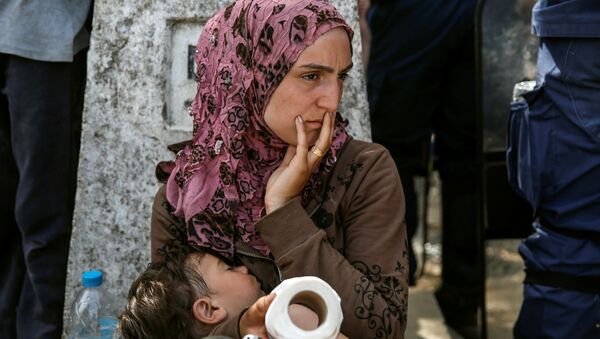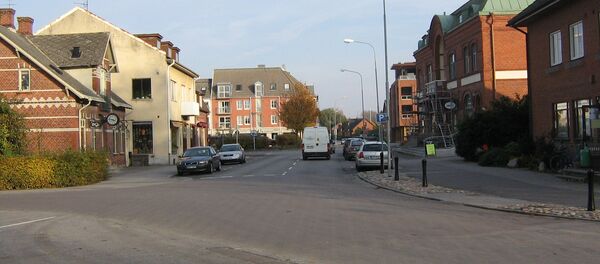MOSCOW (Sputnik) — EU leaders will gather in Brussels on Thursday to discuss the bloc's migration policy. A high-ranking EU representative said earlier on Tuesday that European Council President Donald Tusk, who is against compulsory quotas, would propose to finance efforts to solve migration crisis through "stable" EU instruments.
"We are strong advocates of the 'effective solidarity' concept, the essence of which is that each Member State should contribute to the solution of the problem on a voluntary basis and in size and shape that the Member State is able to provide," Spokesman of the Ministry of Foreign and European Affairs of the Slovak Republic Peter Susko told Sputnik.
Susko stressed that, in October, the EU leaders agreed to work on "finding balance between responsibility, on one hand, and solidarity, on the other," adding that "the result has to be based on consensus."
Poland, the Czech Republic and Hungary, which together with Slovakia form the Visegrad Four political and cultural alliance, have clashed with the European Commission on the issue of quotas over their dissatisfaction with the system and lack of participation. Earlier in December, the Commission announced it was referring Warsaw, Prague and Budapest to the European Court of Justice.
The heads of the EU interior ministries adopted the European Commission's proposal on the distribution of 160,000 undocumented migrants in Italy and Greece, across the European Union under a quota plan in September 2015, which caused resentment among some European countries.
Slovakia, Hungary the Czech Republic and Romania voted against the implementation of the decision in the EU Council and asked the Court of Justice to annul the decision, however the legal actions were dismissed since, according to the EU officials, quota plan was adopted by the EU institutions to effectively respond to the influx of migrants and refugees.
The EU needs a robust and effective system for sustainable migration management for the future.
— European Commission (@EU_Commission) 7 декабря 2017 г.
The weaknesses in the design and implementation of the current EU asylum system have led to differing treatment of asylum seekers & varying recognition rates across the EU#MigrationEU pic.twitter.com/ty03DwxAid
Poland, in turn, has repeatedly declared it would not allow refugees into the country even if the EU Court of Justice urges the country to accept its decision.
"[The EU migrant relocation scheme] is a system, which has not proven effective. It brings threats, and whole cities are deteriorating over it," Polish Interior Minister Mariusz Blaszczak was quoted as saying by Polish TV.



